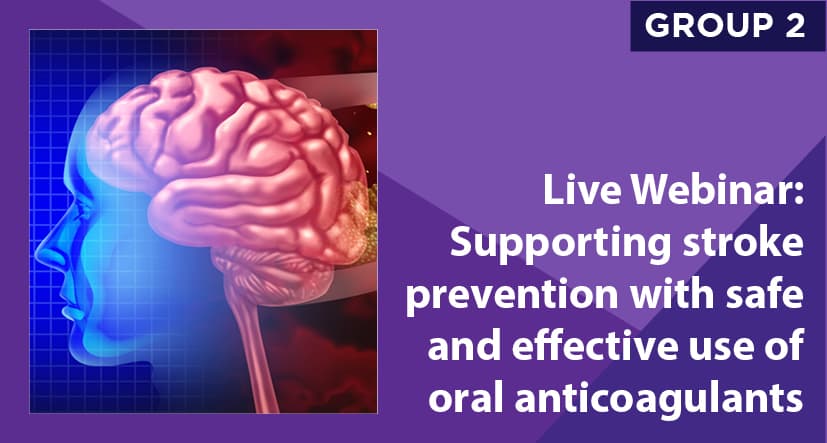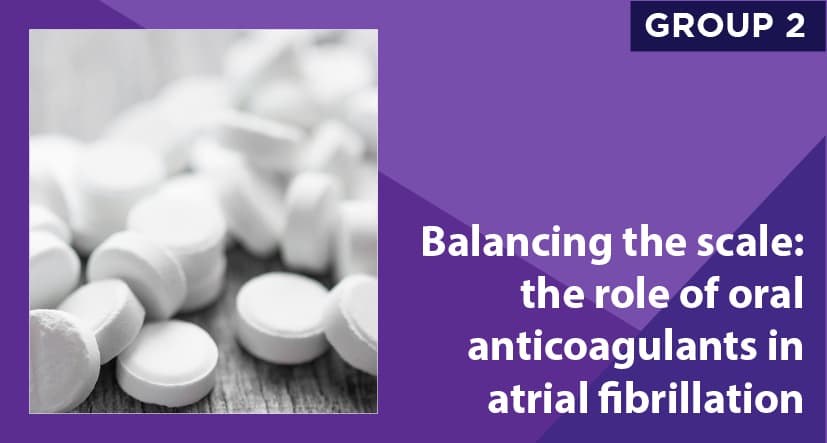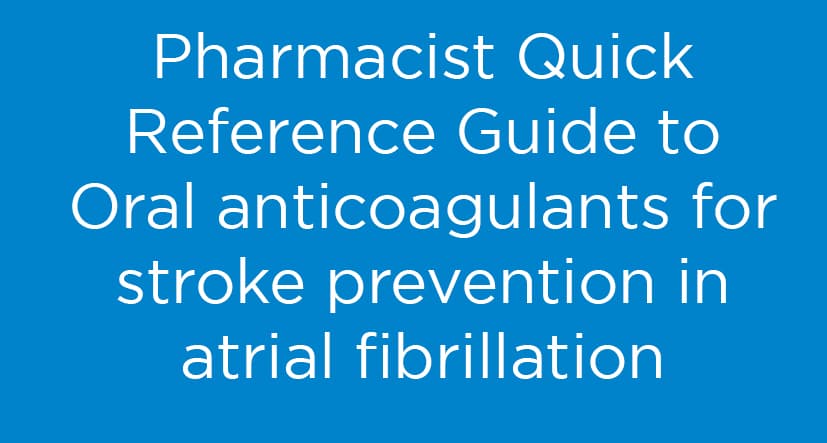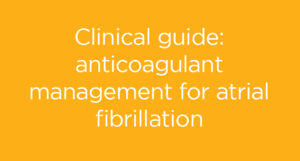Atrial fibrillation (AF) significantly increases the risk of stroke, yet many at-risk individuals remain undertreated. The net benefit of stroke prevention with oral anticoagulants almost always outweighs the risks of bleeding, however, they are often underutilised in practice.
Pharmacists have an essential role to ensure safe and appropriate use of oral anticoagulants in stroke prevention.
Working with consumers and medical experts, the Quality Use of Medicines Alliance have developed evidence-based education and resources to help improve the safe and effective use of oral anticoagulants for lowering AF-related stroke risk.
Click on the links below for available education offerings and resources to optimise the use of anticoagulants for stroke prevention in AF.








